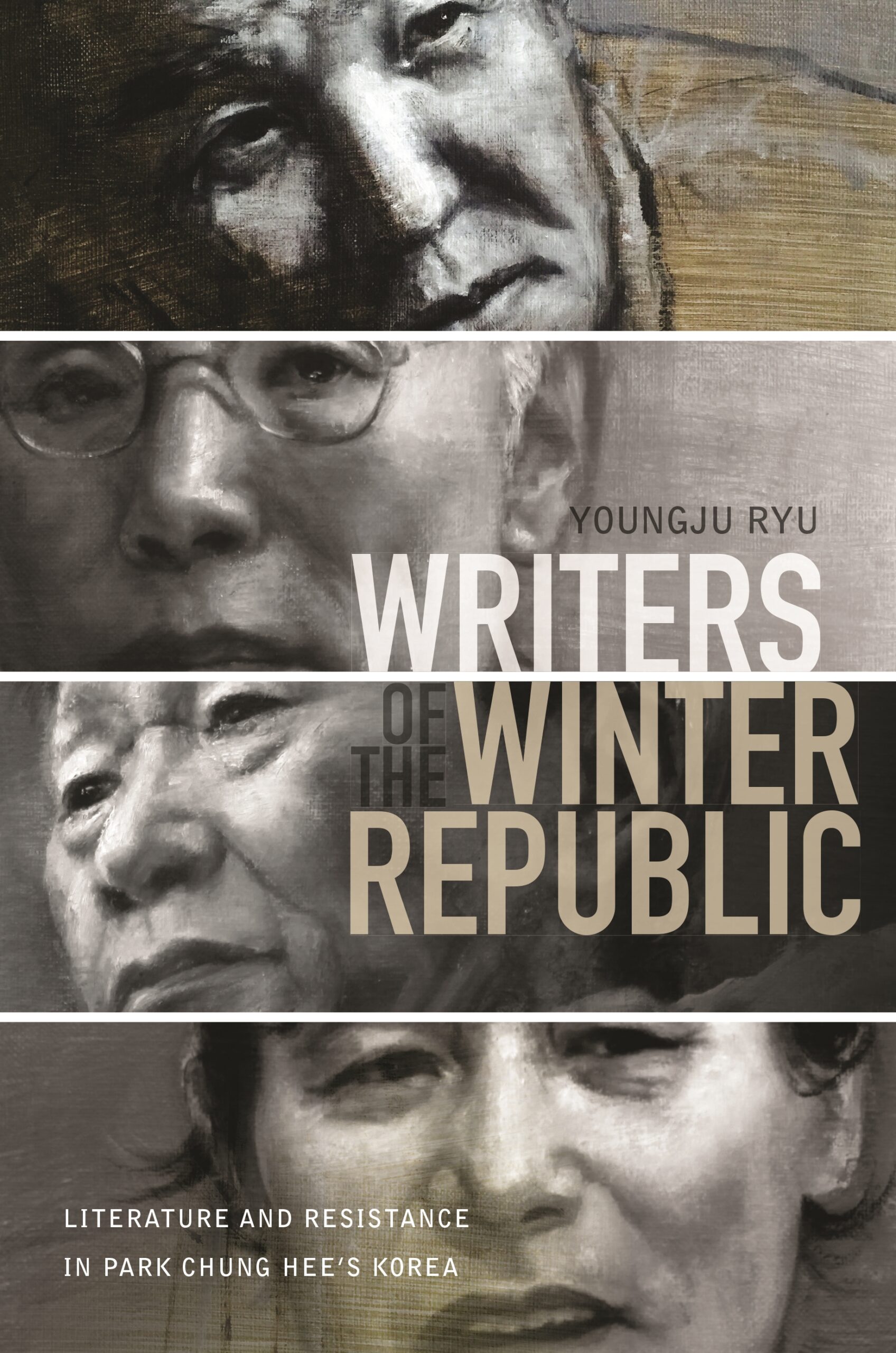Writers of the Winter Republic: Literature and Resistance in Park Chung Hee’s Korea
Awards
- Winner of the Association for Asian Studies – James B. Palais Prize (Korea), 2018
- About the Book
-
In 1975, a young high school teacher took the stage at a prayer meeting in a southwestern Korean city to recite a poem called “The Winter Republic.” The poem became an anthem against the military dictatorship of Park Chung Hee and his successors; the poet, however, soon found himself in court and then in prison for saddling the authoritarian state with such a memorable moniker. This unique book weaves together literary works, biographical accounts, institutional histories, trial transcripts, and personal interviews to tell the powerful story of how literature became a fierce battleground against authoritarian rule during one of the darkest periods in South Korea’s history.
Park Chung Hee’s military dictatorship was a time of unparalleled political oppression. It was also a time of rapid and unprecedented economic development. Against this backdrop, Youngju Ryu charts the growing activism of Korean writers who interpreted literature’s traditional autonomy as a clarion call to action, an imperative to intervene politically in the name of art. Each of the book’s four chapters is devoted to a single writer and organized around a trope central to his work. Kim Chi-ha’s “bandits,” satirizing Park’s dictatorship; Yi Mun-gu’s “neighbor,” evoking old nostalgia and new anxieties; Cho Se-hŭi’s dwarf, representing the plight of the urban poor; and Hwang Sok-yong’s labor fiction, the supposed herald of the proletarian revolution. Ending nearly two decades of an implicit ban on socially engaged writing, literature of the period became politicized not merely in content and form, but also as an institution.
Writers of the Winter Republic emerged as the conscience of their troubled yet formative times. A question of politics lies at the heart of this book, which seeks to understand how and why a time of political oppression and censorship simultaneously expanded the practice and everyday relevance of literature. By animating the lives and works of the men who shaped this period, the book offers readers an illuminating literary, cultural, and political history of the era.
- About the Author(s)
-
Youngju Ryu, Author
Youngju Ryu is associate professor of Korean literature at the University of Michigan.
- Reviews and Endorsements
-
- This is a riveting, beautifully written account of literature that was created in a harrowing situation yet remained focused and clear. . . . This is a necessary study of literature as a vehicle for political change, beyond Park’s Korea as well as in it. Essential.
—CHOICE - In an era of cross-disciplinary cultural studies, it is refreshing to find a book like Writers of the Winter Republic, which focuses on the study of literature and treats its subject matter with utmost respect and care. . . . As the first book-length study of 1970s South Korean literature, Writers of the Winter Republic fills an important critical gap in current Korean literary scholarship in English. The work stands at the crossroads of literary studies and political and intellectual history, and it makes for productive intersections with some of the most exciting scholarship in South Korean historical and cultural studies. The book will have its place among essential readings for students of postcolonial Korean literature and society.
—Pacific Affairs - “The Winter Republic” was a label given by a dissident poet to the dictatorial rule of the South Korean leader Park Chung-hee. . . . This beautifully written book analyzes the work of four other authors whose fiction and poetry exposed political oppression and social injustice during that time. Ryu’s close readings bring these fascinating works alive even for those who don’t read Korean.
—Foreign Affairs - Youngju Ryu offers a vivid portrait of the period from the early 1960s to the early 1990s through accounts of the literary debates of those decades. It is a riveting rendition of a dramatic war against one of the most authoritarian regimes in modern history, a war waged by poets and writers whose ability to inspire and ignite people’s imaginations grew so powerful that many of them were jailed and tortured and, in some cases, sentenced to death. Brilliant and beautifully written, her discussions of the texts are informed by her wide and deep knowledge of Korean history, language, and culture.
—Elaine H. Kim, University of California, Berkeley - Writers of the Winter Republic shows how anyone interested in the political economy of Korea needs to start reading poetry and novels. As Youngju Ryu demonstrates in these elegant and riveting pages, it was literature that provided the heart and conscience of anti-authoritarian resistance, giving voice to wider social forces during an era of military suppression and censorship. The sacrifices writers made together with their marvelous texts capture better than any standard history the compelling and dramatic narratives of modern Korea. This is literary history at its best.
—Andre Schmid, University of Toronto - Writers of the Winter Republic is a significant accomplishment. Youngju Ryu completely revises our thinking about post-1945 South Korean literary history and the relations among politics, aesthetics, and ethics. The impact of this book will be lasting.
—Theodore Hughes, Columbia University
- This is a riveting, beautifully written account of literature that was created in a harrowing situation yet remained focused and clear. . . . This is a necessary study of literature as a vehicle for political change, beyond Park’s Korea as well as in it. Essential.
- Supporting Resources
-





